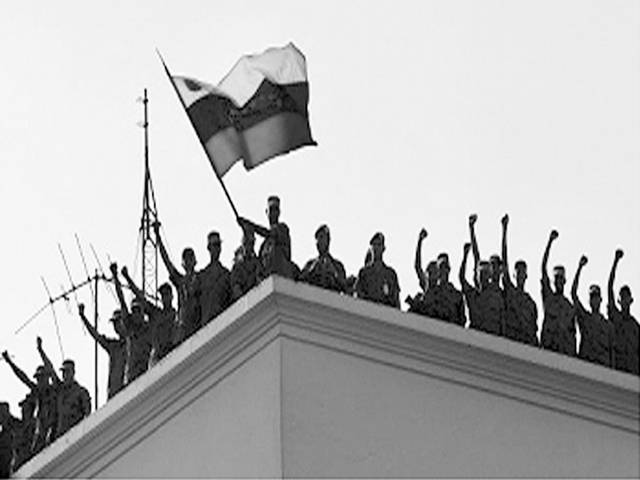A de facto regime – predominantly in the German legal and political sciences – is a ruling federation which, through the de facto and permanent sovereignty of an insurgent group or party, has reached a degree of stability equal to that of an internationally recognised state to which such recognition is largely denied. The American and English doctrine partly rejects this construct. The de facto regime is given limited international capacity as a state-like entity. It is thereby raised to a partial international law subject and to this extent under the protection of the rule of law prohibited by the rule of law, but also has to adhere to the prohibition of intervention. The characteristics of a state are the state, the people of the state, and state power. Recognition by other states, which is listed in part as the fourth element, has, according to prevailing opinion, no constitutive but declaratory effect. Without the three state elements, a state cannot exist because of the lack of state quality. It is sometimes argued that recognition of a stabilised de facto regime as a state means an unacceptable interference in the affairs of the state in whose territory the de facto regime has been recognised.
“Very unusual in an insurgency to have absolutely no political agenda other than
to return to power. Most insurgents have
a political side to them.”
–Jack Keane – 1993






